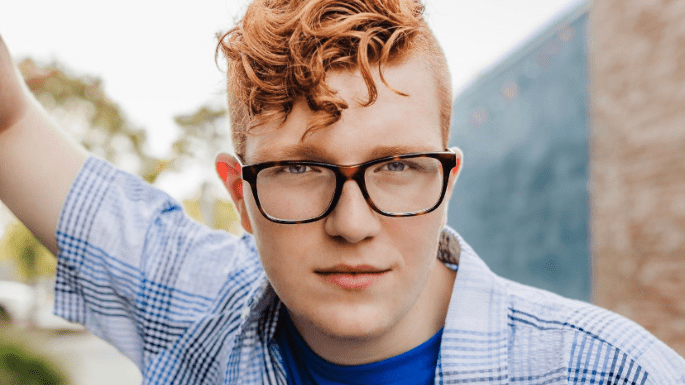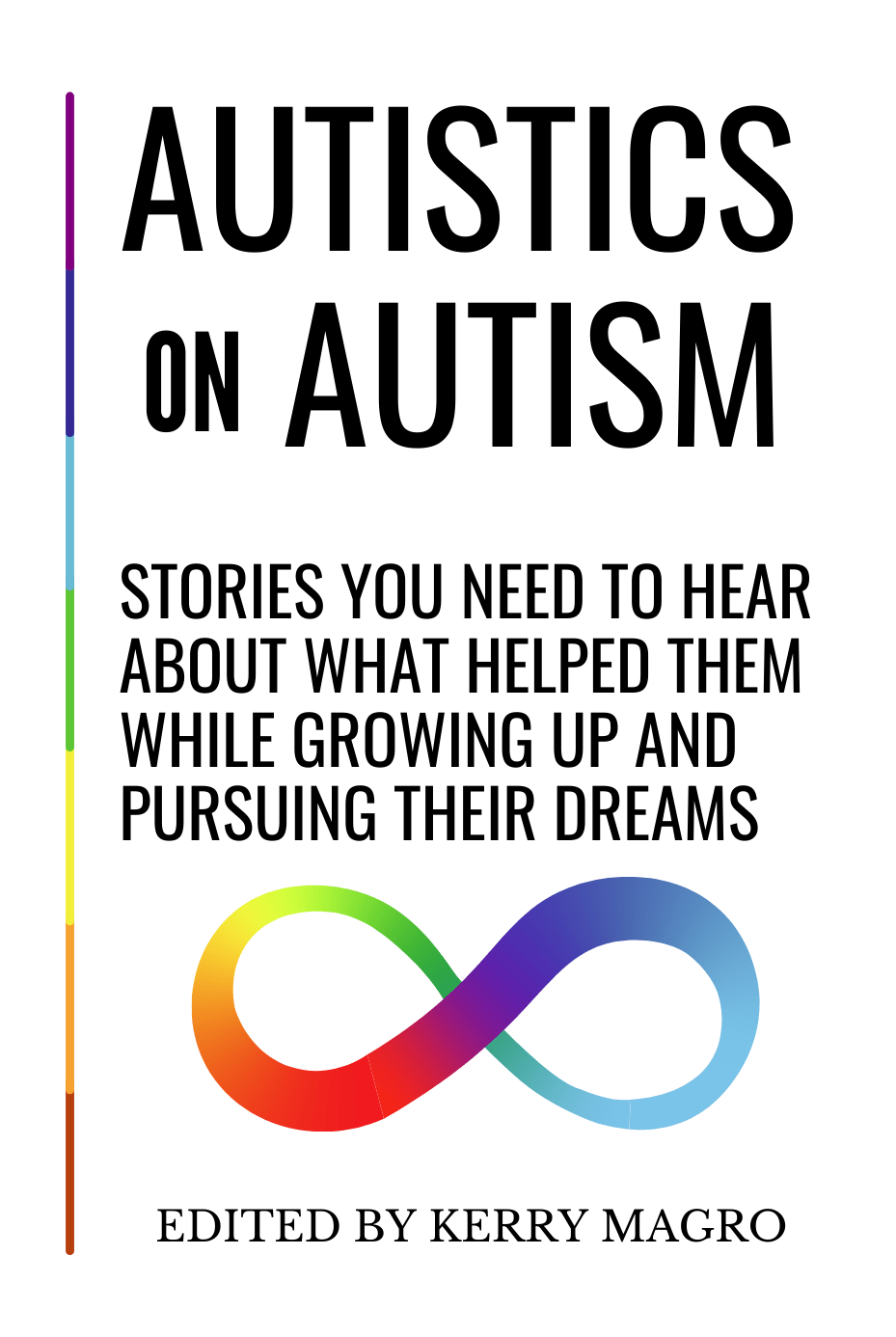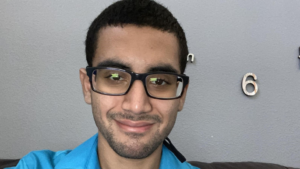This guest post is by Rainer Pasca, a young man who was diagnosed with Aspergers at 5 and who has been accepted into Emerson College. Rainer is applying for the Spring 2023 Making a Difference Autism Scholarship via the nonprofit KFM Making a Difference started by me, Kerry Magro. I was nonverbal till 2.5 and diagnosed with autism at 4, and you can read more about my organization here. Autistics on Autism: Stories You Need to Hear About What Helped Them While Growing Up and Pursuing Their Dreams, our nonprofit’s new book, was released on March 29, 2022, on Amazon here for our community to enjoy featuring the stories of 100 autistic adults.
I’ve been told not to write essays about writing essays about writing essays… so I won’t. But my brain loves metacognition like goats love ivy, craves multiple ways of perceiving every moment.
My brain—now there’s a story. Or a coin with two sides.
My parents knew I was neurodivergent by the time I was four. I cycled through hyperfixations—the planets, the orchestra, the presidents (anything with a clear sequence)—and struggled with eye contact and social cues. I read fluently by two and skipped into kindergarten at 4 years-old. My first-grade teachers, Ms. Hidalgo and Ms. DelQuaglio, saw I was bright, but told my parents they feared I’d never be successful because I didn’t complete center work or hang up my coat in time. My parents realized it was important for others I get an official diagnosis, which I did shortly after that meeting.
Back then, “Asperger’s Syndrome” and “high functioning” were used to describe people like me; these days it’s “Autism Spectrum” or just “AS”. Another benefit of a diagnosis, especially in New York, is access to interventions. To be clear, my parents never saw my neurodivergence as a problem or disorder to “cure”, but as a superpower that came with certain deficits. For three years, a paraprofessional visited our house three times a week to help me with eye contact, reciprocal conversation and organization. My mom always said I had a “Ferrari brain with bicycle brakes” and these interventions equipped me with the brakes I needed to better support my superpower.
Soon, my hyperfixations brought me out into the world. My obsession with the US presidents landed me on The Ellen Show multiple times, including two interviews with Michelle Obama. My memorization of every Eminem song inspired me to make my own music, which led me to headline an LGBTQ+ music festival and meet Rusty Rose, one of the Stonewall Riot participants and Queer Rights Movement pioneers (she passed a literal torch to me on stage!). My preoccupation with words, and thinking about thinking, inspired me to write poetry, which I’ve performed and had published frequently over the past decade, and enabled me to be chosen to introduce the US Poet Laureate, Joy Harjo, when she visited our school. My devotion to the theatre and acting has garnered me leads in numerous productions and a part in the ensemble of Twelfth Night at the Delacorte Theater in Central Park, alongside Tony Award-winners Nikki James and Shuler Hensley.
The two sides of my “brain coin” have made it feel like my identity has a shadow. Like the acceptable, social part of me has been right beside me, but shrouded in uncertainty. Autism hasn’t always felt like a superpower, not when I’ve had to work so hard on things that come naturally to my peers. Everyone else seemed to walk and talk and move in weird ways, like there was a class they all took on how to be a person that I missed. I used to wonder what it said about me that I couldn’t act the way they did.
Even my struggles, though, have helped me as a writer, performer, and student. When you spend as much time as I have thinking about the way people think, about how each of us functions and operates in the world, it broadens your ability to perceive and empathize and create.
What once felt like both a curse and a blessing has become 98% blessing. Sure, there are still moments when I wish I could immediately and seamlessly slip into the flow everyone else seems to occupy, but mostly I wouldn’t change a thing. After ten years of building up the best brakes possible for my Ferrari brain, I know when to step on the gas and when to stop, when to get lost in the world’s magic and when to change direction.
Follow my journey on Facebook, my Facebook Fan Page, Tiktok, Youtube & Instagram.
My name is Kerry Magro, a professional speaker and best-selling author who is also on the autism spectrum. I started the nonprofit KFM Making a Difference in 2011 to help students with autism receive scholarship aid to pursue post-secondary education. Help support me so I can continue to help students with autism go to college by making a tax-deductible donation to our nonprofit here.
Autistics on Autism: Stories You Need to Hear About What Helped Them While Growing Up and Pursuing Their Dreams was released on March 29, 2022 on Amazon here for our community to enjoy featuring the stories of 100 autistic adults. 100% of the proceeds from this book will go back to our nonprofit to support initiatives like our autism scholarship program. In addition, this autistic adult’s essay you just read will be featured in a future volume of this book as we plan on making this into a series of books on autistic adults.















